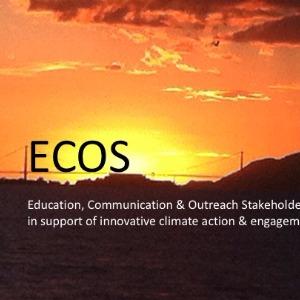Please find below the
Finalist Evaluation
Judges'' comments
The "network of networks" Hive approach has the potential to connect with a broad range of stakeholders and provide opportunities for communities to build resilience. The project is ambitious in scope but seems feasible based on the past experience of the project leaders and the clear plan for action. However, it's unclear how creating a 'network of networks' would have direct impact on reducing carbon emissions. We would have also liked to see more thought go into the budget. What are the direct expenses for the $100,000 to start the network? What would the staffing look like? Etc. Overall, think this is an interesting idea, but we also see too many complications with the hive mind concept, and the proposal has not convinced me that the impact would be direct.
Semi-Finalist Evaluation
Judges'' ratings
| • | Novelty: | |
| • | Feasibility: | |
| • | Impact: | |
| • | Presentation: |
Judges'' comments
I'm intrigued by the potential of modular learning centers to scale the impact of sustainability education to target regions. I would be interested to see creativity around how to reduce the costs of each learning center. In the cost section, it mentions that the pilot costs around $400,000, but future centers will be much less expensive. I'd like to know more details about how quickly the costs reduce, and how scalable the concept is over time.
The Hive concept is a creative and an exciting idea to encourage climate literacy, education, and action within a compelling physical space. The proposal mentions first aid and charging stations; if located in refugee centers and vulnerable rural regions, it's critical to not lose focus on community needs like these examples beyond climate and energy awareness raising.
Well thought out and already demonstrating some success in terms of recognition by the UNFCCC. Not sure if The Hive idea would need to be a new building in cities, or if existing structures could be utilized and retrofitted, especially in cities where there are vacant buildings that could be put to good use instead of creating a new structure. Many organizations are already part of networks and coalitions, so there's a challenge in starting a new 'network of networks' and demonstrating your unique value-add for orgs to join, but more coordination with climate change groups is definitely needed globally in order to meet the Paris Agreement needs and rally support for COP23 and future climate negotiations and conferences.
"Network of Network's concept is very interesting". But, the current proposal is not clear in terms of how it addresses the challenges that the networks are facing. When advanced, it would be preferable for the proposer to shape the proposal in this end.
 Mark Mccaffrey Nov 1, 2017 01:53 | Proposal creator Revisions to the original proposal have been made based on the feedback, which we are grateful for since it has helped us refine and clarify the vision. Yes, there are many organizations that are already part of networks and coalitions, but ECOS is unique. As an approved UNFCCC community to help link official Action for Climate Empowerment focal points with other existing and emerging non-state actors already exists, we will use the "collective impact" model for forging the "network of networks" and addressing the challenges that networks are facing by serving as the supporting backbone, clarifying a shared vision, providing ongoing communications, developing shared measures of success and organizing mutually reinforcing activities. But ECOS offers a particular strategy that goes beyond traditional networking: the development and deployment of Climate Action Hives--a "kit" that will be available for free as a set of plans that local communities can customize and build on their own or can be delivered to locations around the world in the form of shipping containers with solar panels, energy strorage and educational/engagement materials that incorporate Project Drawdown solutions and related Sustainable Development Goals. Both a robust "network of networks" connecting education, communication and outreach stakeholders involved with climate action and specific, physical, community-based demonstration and service centers that provide practical solutions for transforming communities and building resilience at the local level are required for successful climate action. While there are many excellent Climate CoLab proposals, this proposal is unique in linking a global "network of networks" with community-based interventions that have strong potential to address the urgency, scale and scope of the challenge. It also is supported by our recent research that finds the "sweet spot" for effective climate action is on a community scale of between 10,000 and 100,000 people.
|
